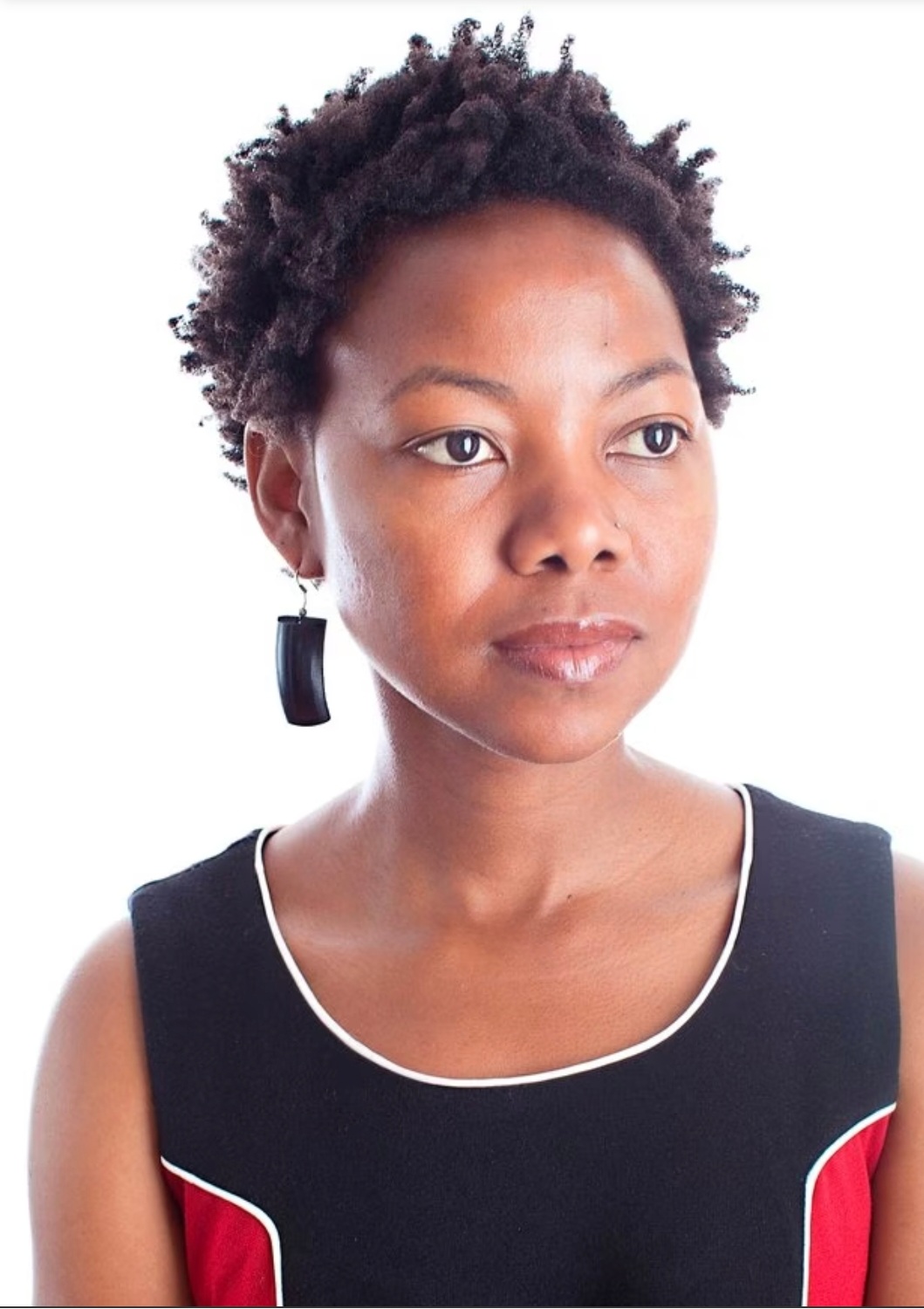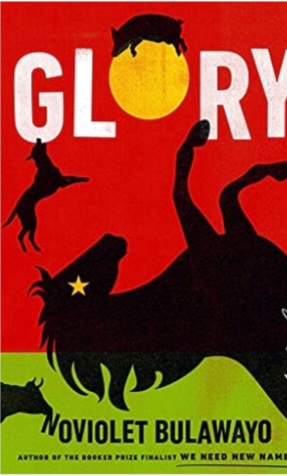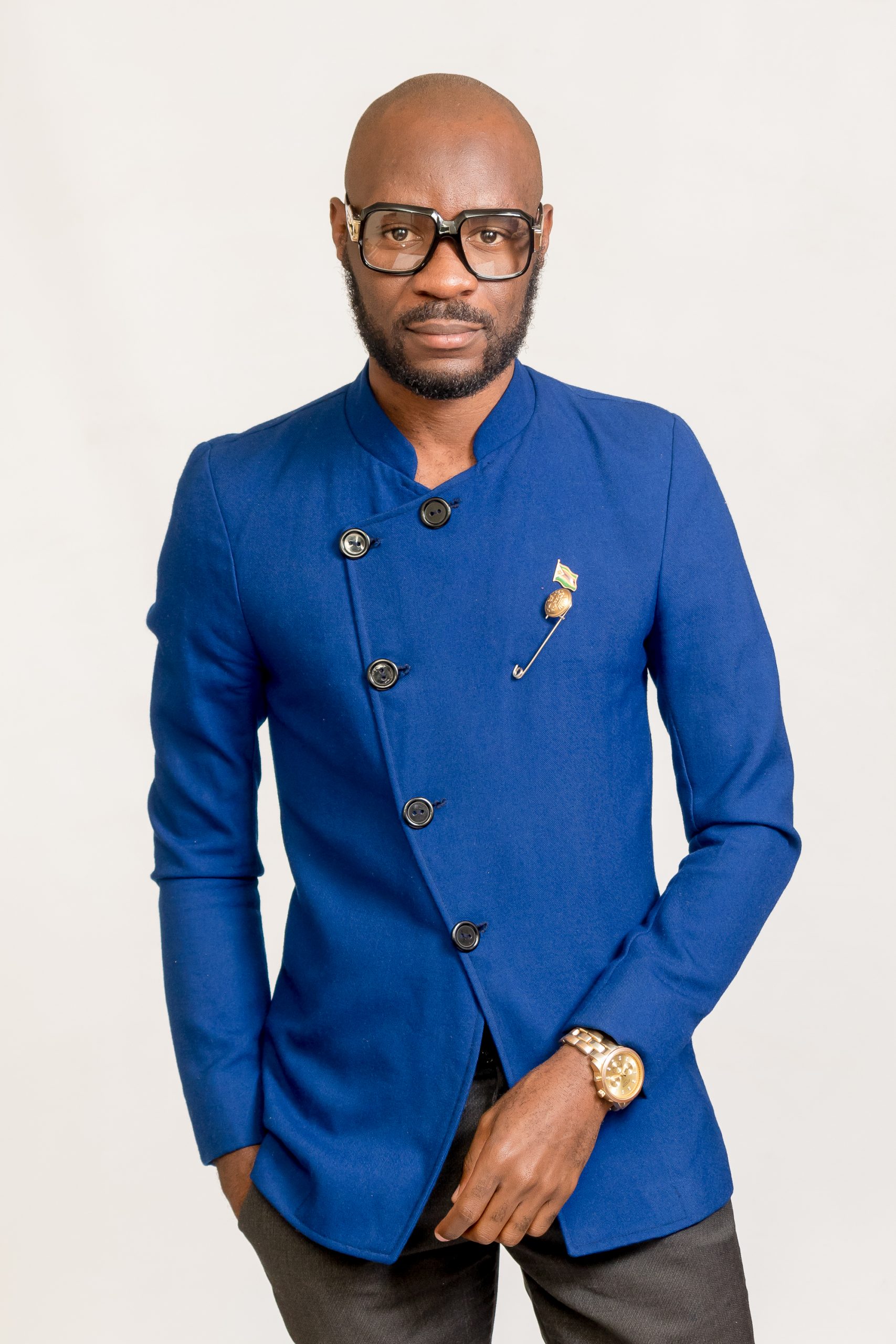BY LIZZY ATTREE
NoViolet Bulawayo’s deeply satirical second novel, Glory, is clearly linked to George Orwell’s Animal Farm (1945), a satire of Stalin’s Russia, first published 78 years ago.
The novel is prefaced with a letter from the author to the reader, citing Animal Farm as a major influence, but referring even more powerfully to the oral tradition of “grandmother’s beguiling tales of talking animals and alternate worlds.”
The alternate revolutionary world of Trotsky, Lenin, and Stalin evoked by Orwell is mirrored in Glory, just as Zimbabwe is mirrored in Jidada, the “fictional” country where the novel is set.
Jidada — “with a -da and another -da” — resembles the Zimbabwe I’ve known, visited, and read about since 2001. And yet Jidada is populated with talking animals — “mals” and “femals” — organised into a hierarchy of horses, dogs, cats, cows, and tenacious, adaptable goats, whose propensity for both comedy and violence is as loud and hysterical as the laughter of my closest Zimbabwean friends.
With each chapter divided into subheaded sections, the novel’s segmented structure is a testament to the need for new genres to encapsulate the polyphony of voices in the Zimbabwean diaspora.
The call and response refrain of African oral storytelling is embedded in Glory via the repetition of “Tholukuthi,” a Ndebele colloquialism meaning “I find that,” which is used to express shock or amazement at the strange doings depicted in the story.

NoViolet Bulawayo
Glory, published on International Women’s Day (March 8, 2022), focuses on the “Crocodile” that has stalked Zimbabwe since the end of the 15-year war of independence in 1979 and the rise of the dominant political party, Zanu PF (Zimbabwe African National Union – Patriotic Front). Robert Mugabe is, for Bulawayo, the crocodile who ate the sun — as Peter Godwin described him in his 2006 book — yet the presence of other villains nurtured during Zanu PF’s long stranglehold on power means that the current president, Emmerson Mnangagwa, presents an even greater danger to Zimbabwe today.
In Bulawayo’s satiric rendering, Mnangagwa is represented by a horse, General Tuvy — a play on the Shona word for shit, duzvi, thus setting up the joke of his name: General Shit.
He is surrounded by other generals, depicted as pit bulls, and by a manipulative cat named Jolijo, a sorcerer, who convinces Tuvy that wearing his scarf at all times, like a snake around his neck, will protect him from assassination — a clear swipe at Mnangagwa’s ever-present red, gold, and green scarf, worn in all weathers.
The former president is depicted as an “Old Horse,” with dementia, who dreams of Nehanda, the Shona spirit medium executed in 1898 after leading a revolt against the British colonisers.
In his dream, Nehanda “didn’t have her head, and at the end of her neck, where her head should have been, was an opening, and from out of that opening flew these butterflies, a whole rally of them. […] [I]t was like, like watching blood dance.”
This horrifying image, besides evoking the work of Yvonne Vera, Bulawayo’s literary ancestor (specifically, her novels Butterfly Burning from 1998 and Nehanda from 1993), is a damning indictment of Mugabe’s betrayal of his people.
The legend of Nehanda’s execution is bound to stories of the first chimurenga, or struggle for freedom, which Vera brought to vivid life in her novel.
The failure of Mugabe to deliver real freedom and prosperity, despite leading the war of independence from colonial rule (with Joshua Nkomo), hangs heavy on his senile conscience in Glory.
He is also haunted by the killings in Matabeleland in the 1980s, as later in the book he is “soaked in blood […] [A]ll around him were dead, blabbering babies.”
Bulawayo portrays him savagely, yet briefly allows him some humanity when, like a fool, he adopts a disguise to walk the streets after his resignation, expressing disbelief at the degenerate state of the schools whose demise he presided over.
This reverie is, however, quickly drenched in red rain, rivers of blood, and “bodies, bodies, bodies.”
When Bulawayo writes about Mnangagwa, she shows far less mercy. But the present is much more difficult to handle than the past — slippery, fluid, still shifting into the patterns of history or her-story.
The recent past is ripe for satire. But it is dangerous.
By raising her voice in this way, Bulawayo is offering the world a lesson about the corruptions of power, just as Orwell did.
She is also documenting generations of trauma, “an important archive of the Seat of Power’s cruelty.”
The central “femal” characters — a mother and daughter, Simiso and Destiny — mirror each other’s suffering, but by finding each other again, naming and acknowledging each other’s scars, “the ache and pain that have for so long been shut up inside their bodies [become] the weight of butterfly wings.”
Like her meteoric debut We Need New Names (2013), Bulawayo’s Glory is filled with metatextual references to African American political issues and contexts, ranging from Martin Luther King Jr. to the #BlackLivesMatter movement, which are folded into her commentary on contemporary Zimbabwean society.
All of Bulawayo’s writing centers on dispossession, and a fiercely proud sense of the psychological damage and emotional vulnerability of a dislocated, disenfranchised people who have had to create a new language — new names — to articulate their lived experiences.
In Bulawayo’s case, this has included moving to the United States to complete her education.
There is a moment towards the end of We Need New Names when the heroine, Darling, calls home from the United States to speak to her childhood friend, Chipo, only to be bluntly told that Zimbabwe is not her country anymore:
Just tell me one thing. What are you doing not in your country right now? Why did you run off to America, Darling Nonkululeko Nkala, huh?
Why did you just leave? If it’s your country, you have to love it to live in it and not leave it.
You have to fight for it no matter what, to make it right. Tell me, do you abandon your house because it’s burning or do you find water to put out the fire?
And if you leave it burning, do you expect the flames to turn into water and put themselves out?
You left it, Darling, my dear, you left the house burning and you have the guts to tell me, in that stupid accent that you were not even born with, that doesn’t even suit you, that this is your country?
It has been a long time since the world has cared to listen to stories from Zimbabwe, after over 20 years of farm invasions and the failure of the government to effect any real change.
Like many of the millions of Zimbabweans who have left their homeland in the last two decades, Bulawayo now lives and works outside the country, sending money home to her family and returning when she can.
In a March 2022 profile in The New York Times, the author affirms that writing this book was her way of “showing up”: “I needed to be part of the collective struggle that was going on. So the book is my participation.”
While the work of Zimbabwean novelists Petina Gappah and Tsitsi Dangarembga deals with the Mugabe era (1980–2017), neither delves into the Matabeleland massacres of his early reign, known by Zimbabweans as Gukurahundi (the rain that sweeps away the chaff).
Their narratives have a different historical focus than their younger literary sisters, novelists like Bulawayo, Novuyo Rosa Tshuma, and Siphiwe Gloria Ndlovu, who have directly tackled the recent, fractured past.
Glory, as we have seen, summons the spirit of Nehanda, as did Vera’s novel some three decades previously.
The prophecy made in the moment of Nehanda’s death was that “these bones will surely rise again” and the people would one day be free.
When Vera died of Aids-related meningitis in April 2005, her final manuscript, Obedience (about the totalitarian authoritarianism of Mugabe’s ZANU–PF), was left unfinished and remains unpublished.
But it is almost as if Bulawayo has revived her predecessor’s spirit in Glory, through the shared imagery of the lightness and freedom of butterflies, of jacarandas that bleed.
Though ethnically Shona, Vera’s history of engagement with Matabeleland makes her the literary ancestor of Bulawayo, Ndlovu, and Tshuma.
Tshuma’s House of Stone (2018) focuses on the psychological instability of those who had lived through genocide.
The novel is in conversation with Vera’s The Stone Virgins (2002), which graphically but poetically detailed both the sadism and the humanity of a perpetrator of atrocities during the Gukurahundi.
Ndlovu’s The Theory of Flight (2021) also develops a bold, painful, personal narrative about what it was like to live through that holocaust.
These two novels, along with Glory, link the present moment with the abiding historical demand for change, with the unresolved and unburied past.
Not since Dambudzo Marechera, in his 1978 novel The House of Hunger, described his protagonist’s spilled blood in the dirt as resembling a map of Zimbabwe has the nation been painted in such bloody terms — as a place of cruelty, madness, and violence.
Of the three recent novels, it is Glory that is the most outraged, most full of explicit accusations of blame aimed clearly at the country’s current president and the corrupt system of patronage that scaffolds his shambolic, bloodthirsty government.
Therein lies its revolutionary potential, as well as its failing as a conventional novel.
Glory shocks and appalls, relentlessly attacking the seat of power, but it often leaves emotion behind in its vitriolic — albeit often laugh-out-loud hilarious — lampooning of the criminal, inhumane, murderous capacities of those who hold power in today’s Zimbabwe. – LARB
*Writer and critic Dr. Lizzy Attree is the author of Blood on the Page and co-editor of the poetry collection Thinking Outside the Penalty Box. She is co-founder of the Safal-Cornell Kiswahili Prize for African Literature, and she is UK director of Short Story Day Africa.

 Slider1 year ago
Slider1 year ago
 News1 year ago
News1 year ago
 Tourism and Environment2 years ago
Tourism and Environment2 years ago
 News3 years ago
News3 years ago
 News2 years ago
News2 years ago
 News3 years ago
News3 years ago
 News1 year ago
News1 year ago
 News2 years ago
News2 years ago





